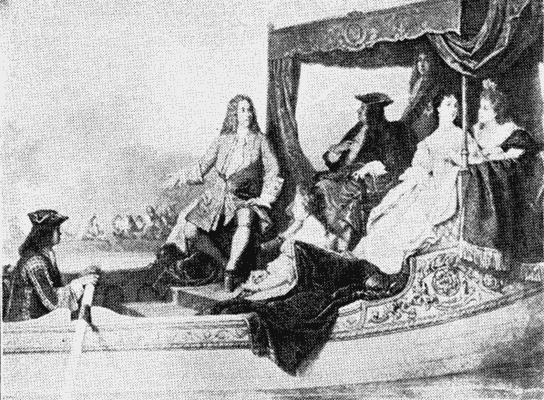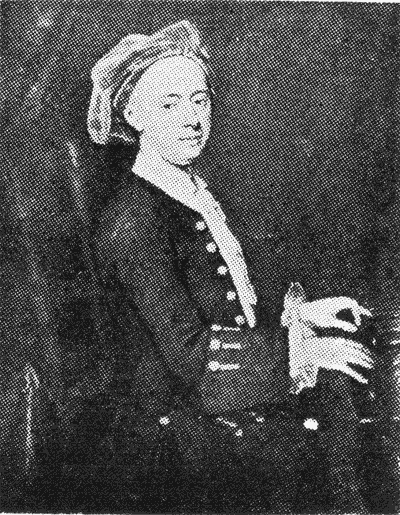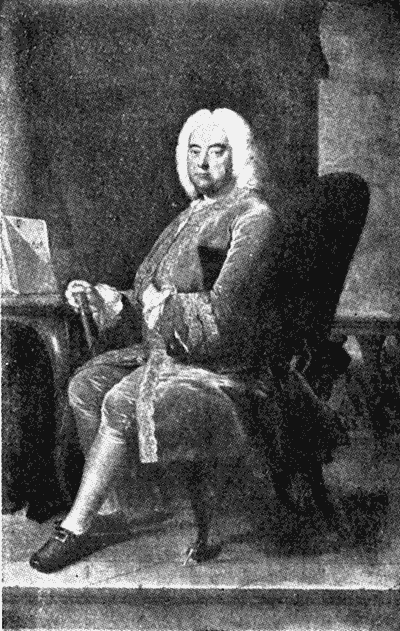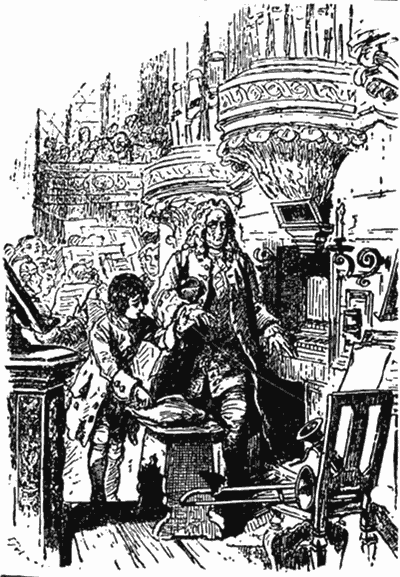After his residence in Italy Handel went back to Germany, where he met the Elector of Hanover, who induced him to accept the post of Capellmeister. Handel agreed to do this on condition that he might first visit England.
When Handel reached England he found himself already well known there. The English people knew his operas, and liked them so much that Handel concluded to stay.
But to his surprise and confusion it happened while he was in London that the very Elector of Hanover became George I, King of England. Handel expected he would fare badly with the king for not having returned as Capellmeister to Germany. But a friend arranged the matter so that Handel should compose some music for the king's coronation, hoping thereby to please his majesty.
He composed twenty-five pieces, called Water Music. A boat containing the players followed that in which the king sat. When the music was performed the king asked who composed it. This led to Handel's being invited into the royal boat, where he again won the king's favor.

WATER MUSIC.
Handel greatly wished to give opera in London and devote his time to it as composer. For many years the writing and staging of operas took all of Handel's time and thought, but he was not destined to make it a true success. Handel was a very fine performer at the keyboard.

HANDEL AT THE KEYBOARD.
Once again Handel visited his native land. On returning to England, which was to be his home for the future, he was asked by a wealthy gentleman, the Duke of Chandos, to become composer at the ducal residence. Handel accepted this offer and composed much beautiful music, which some day we shall hear.
Handel was much beloved in England and was received at court.

HANDEL IN THE DRESS HE WORE AT THE ENGLISH COURT.
He had tried hard to please the English public as an opera composer, and the disappointment of his failure caused him a severe illness from which he suffered greatly. He lived to write some of the most lovely music the world possesses.
Perhaps the most famous of all his oratorios is the Messiah. When this was sung for the first time in London the king and all present rose at the words—For the Lord God Omnipotent Reigneth. Thus came the custom of rising at the singing of theHallelujah Chorus.
Handel loved England and became a naturalized British subject. He had a house in London, which in those days must have been considered a very fine one. He was very fond of gathering bodies of musicians together. Here he is in a familiar group.

HANDEL IN THE CIRCLE OF HIS MUSICIANS.
A great lover of children, Handel once conducted the Messiah for the benefit of a hospital for little children, to which he gave large sums.
Toward the end of his life he became blind. Some one had to lead him to the organ loft, where, with his wonderful skill, he could still charm and delight.
The last appearance that Handel made in public was to conduct the Messiah. A few days later, on Good Friday, April 13, 1759, he passed away.

BLIND HANDEL BEING LED TO THE ORGAN.
The English people loved and admired him so much that he was buried in Westminster Abbey.
Listening begins on Monday and continues for the next two weeks. Please join us for a wonderful selection of Handel performances. Your friends are always welcome, too.
When Handel reached England he found himself already well known there. The English people knew his operas, and liked them so much that Handel concluded to stay.
But to his surprise and confusion it happened while he was in London that the very Elector of Hanover became George I, King of England. Handel expected he would fare badly with the king for not having returned as Capellmeister to Germany. But a friend arranged the matter so that Handel should compose some music for the king's coronation, hoping thereby to please his majesty.
He composed twenty-five pieces, called Water Music. A boat containing the players followed that in which the king sat. When the music was performed the king asked who composed it. This led to Handel's being invited into the royal boat, where he again won the king's favor.

WATER MUSIC.
Handel greatly wished to give opera in London and devote his time to it as composer. For many years the writing and staging of operas took all of Handel's time and thought, but he was not destined to make it a true success. Handel was a very fine performer at the keyboard.

HANDEL AT THE KEYBOARD.
Once again Handel visited his native land. On returning to England, which was to be his home for the future, he was asked by a wealthy gentleman, the Duke of Chandos, to become composer at the ducal residence. Handel accepted this offer and composed much beautiful music, which some day we shall hear.
Handel was much beloved in England and was received at court.

HANDEL IN THE DRESS HE WORE AT THE ENGLISH COURT.
He had tried hard to please the English public as an opera composer, and the disappointment of his failure caused him a severe illness from which he suffered greatly. He lived to write some of the most lovely music the world possesses.
Perhaps the most famous of all his oratorios is the Messiah. When this was sung for the first time in London the king and all present rose at the words—For the Lord God Omnipotent Reigneth. Thus came the custom of rising at the singing of theHallelujah Chorus.
Handel loved England and became a naturalized British subject. He had a house in London, which in those days must have been considered a very fine one. He was very fond of gathering bodies of musicians together. Here he is in a familiar group.

HANDEL IN THE CIRCLE OF HIS MUSICIANS.
A great lover of children, Handel once conducted the Messiah for the benefit of a hospital for little children, to which he gave large sums.
Toward the end of his life he became blind. Some one had to lead him to the organ loft, where, with his wonderful skill, he could still charm and delight.
The last appearance that Handel made in public was to conduct the Messiah. A few days later, on Good Friday, April 13, 1759, he passed away.

BLIND HANDEL BEING LED TO THE ORGAN.
The English people loved and admired him so much that he was buried in Westminster Abbey.
Listening begins on Monday and continues for the next two weeks. Please join us for a wonderful selection of Handel performances. Your friends are always welcome, too.
No comments:
Post a Comment